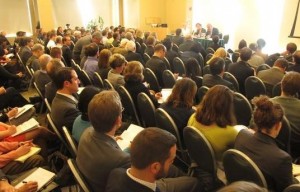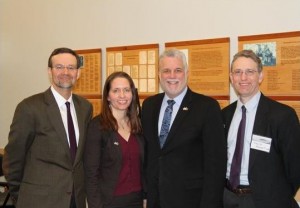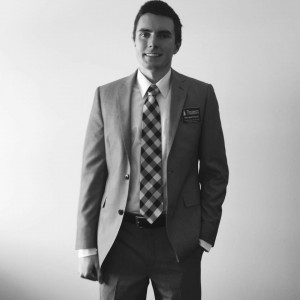 As a student within the Geography Department at the University of Vermont, I have been provided with a unique set of opportunities and experiences that have significantly supported my growth as a student and as a person. As I look back on the four years that I have studied at UVM, I’ve realized that my most valuable experiences have come as a result of exploring opportunities related to internships, studying abroad, and service-learning. When I started looking at colleges while still in high school, I remember that one of my main objectives was to find a school in a faraway place where I could experience something completely different from Vermont, but financially it seemed to make more sense to stay in-state. Therefore, during the fall of 2011, I was fairly hesitant about starting my tenure at UVM. However, I soon began to find comfort here after becoming involved with the Integrated Study of Earth and the Environment (ISEE) Program. With this program, I was able to live and attend classes with a small group of students from around the country who all shared a similar interest in studying the environment.
As a student within the Geography Department at the University of Vermont, I have been provided with a unique set of opportunities and experiences that have significantly supported my growth as a student and as a person. As I look back on the four years that I have studied at UVM, I’ve realized that my most valuable experiences have come as a result of exploring opportunities related to internships, studying abroad, and service-learning. When I started looking at colleges while still in high school, I remember that one of my main objectives was to find a school in a faraway place where I could experience something completely different from Vermont, but financially it seemed to make more sense to stay in-state. Therefore, during the fall of 2011, I was fairly hesitant about starting my tenure at UVM. However, I soon began to find comfort here after becoming involved with the Integrated Study of Earth and the Environment (ISEE) Program. With this program, I was able to live and attend classes with a small group of students from around the country who all shared a similar interest in studying the environment.
Unlike many other first-year students, I came to UVM knowing exactly what I wanted to study. For as long as I can remember I’ve wanted to pursue a profession that would allow me to alleviate problems relating to transportation 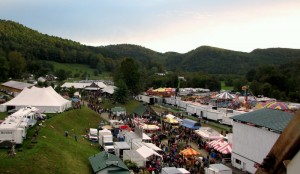 and sustainability. I first truly became interested in transportation after noticing the traffic impacts of the annual Tunbridge Fair (which I’ve attended nearly every year of my life). Thus, during the course of my undergraduate career, I’ve been most interested in studying methods to reduce car dependency, encourage sustainable patterns of development, and promote alternative forms of transportation. I’ve enrolled in nearly every transportation-related class that the UVM has to offer, and I’m passionate about researching innovative methods to develop sustainable transportation. Thus, when I first discovered geography at UVM, I knew that I would be able to focus my studies on subjects that related to my specific interests.
and sustainability. I first truly became interested in transportation after noticing the traffic impacts of the annual Tunbridge Fair (which I’ve attended nearly every year of my life). Thus, during the course of my undergraduate career, I’ve been most interested in studying methods to reduce car dependency, encourage sustainable patterns of development, and promote alternative forms of transportation. I’ve enrolled in nearly every transportation-related class that the UVM has to offer, and I’m passionate about researching innovative methods to develop sustainable transportation. Thus, when I first discovered geography at UVM, I knew that I would be able to focus my studies on subjects that related to my specific interests.
Fortunately, many of the service-learning and geography courses that I have taken have provided me with a valuable set of skills that enabled me to participate in a variety of internships. For the past two summers I have worked as a 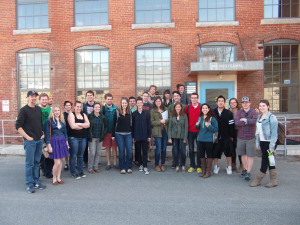 transportation planning intern with the Two Rivers-Ottauquechee Regional Commission and the Chittenden County Regional Planning Commission. At these planning organizations, I worked alongside state officials to develop transportation plans, implement climate change mitigation strategies, research the cost of maintaining Vermont’s roads, and conduct municipal infrastructure inventories using ArcGIS. My time as a geography student made me well-equipped to undertake those internships.
transportation planning intern with the Two Rivers-Ottauquechee Regional Commission and the Chittenden County Regional Planning Commission. At these planning organizations, I worked alongside state officials to develop transportation plans, implement climate change mitigation strategies, research the cost of maintaining Vermont’s roads, and conduct municipal infrastructure inventories using ArcGIS. My time as a geography student made me well-equipped to undertake those internships.
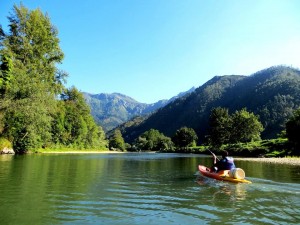 Throughout my time at the UVM, I’ve taken advantage of a variety of opportunities related to community planning and sustainability. While studying abroad in Spain in 2013, I was awarded a research travel grant from the Oaklawn Foundation to travel to Madrid, Barcelona, Geneva, and Zurich to study how sustainable transportation and dense development can benefit communities environmentally, economically, and socially. Additionally, during the fall of 2014, I directed a campaign for the Vermont Public Research Interest Group in order to promote bold action against climate change within the State Legislature and to support Vermont’s renewable energy plan.
Throughout my time at the UVM, I’ve taken advantage of a variety of opportunities related to community planning and sustainability. While studying abroad in Spain in 2013, I was awarded a research travel grant from the Oaklawn Foundation to travel to Madrid, Barcelona, Geneva, and Zurich to study how sustainable transportation and dense development can benefit communities environmentally, economically, and socially. Additionally, during the fall of 2014, I directed a campaign for the Vermont Public Research Interest Group in order to promote bold action against climate change within the State Legislature and to support Vermont’s renewable energy plan.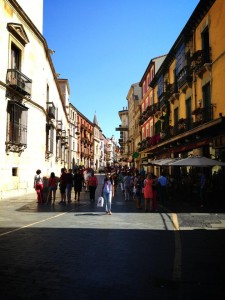
During my last semester at UVM, I interned in the Vermont Legislature on the House Transportation Committee. I worked alongside Rep. Curt McCormack on issues related to passenger rail service, sustainable transportation policy, and reducing the use of single occupancy vehicles in Vermont. Additionally, I have spent 10 hours a week interning at the Center for Research on Vermont, for which I am responsible for email communications, event planning, tracking Vermont-related eNews, and public outreach to promote Vermont research.
As my four-year journey at UVM now nears the final phase, I am fortunate to have taken advantage of all the opportunities that I have been offered. I take pride in the fact that I have been involved with internships, studying abroad, and extracurricular associations such as the Geography Club and Gamma Theta Upsilon. As a result of these experiences and my overall academic achievements at UVM, I accepted a full-time position as a transportation planner with the Chittenden County Regional Planning Commission. I feel incredibly fortunate to not only have a job directly related to the coursework that I have studied while at UVM, but to also be working for an organization that is also passionate about sustainability.
Marshall Distel is a senior Geography major at UVM from Tunbridge, Vermont.



